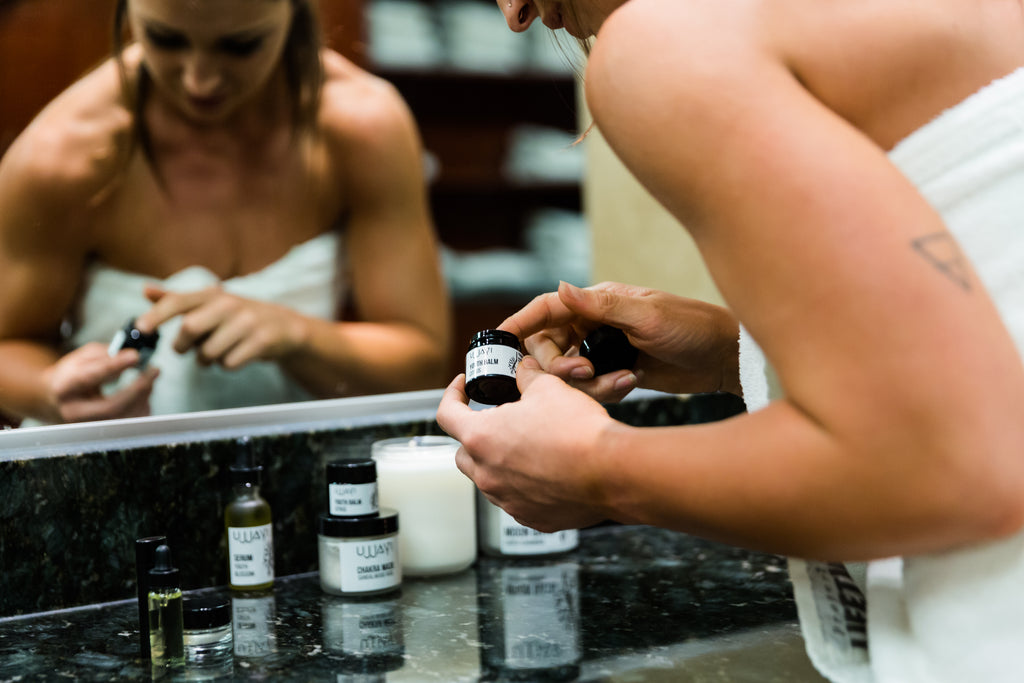
Empower Your Beauty Cabinet Decisions

“Education is not a tool for development - individual, community and the nation. It is the foundation for our future. It is empowerment to make choices and emboldens the youth to chase their dreams.” - Nita Ambani
Our hope at Ujjayi is that you become a knowledgeable consumer of beauty products and that your products match the rest of your healthy, active lifestyle. We want to empower you to make healthy decisions and be able to navigate an often-confusing industry.
Last week we talked about the differences between common marketing words like “natural” and “clean” in the beauty realm, and how the differences in definition and use derive from the fact that the beauty industry in largely unregulated. It’s an industry where you unfortunately cannot trust the government to look out for your best interest, but you instead need to be educated on what to choose and what to avoid.
You may be asking yourself, “Why do I need to know the differences? What makes a beauty product “good” or “bad?” Well, although most beauty products go on the skin and are not ingested, they still seep into your body and effect your endocrine system – the system in charge of making sure all of your hormones are working in sync. A disruption in this system can cause everything from minor annoyances to cancer.
Thankfully, we’ve done the research for you. Let’s go over 4 of the worst chemicals that show up in a majority of common beauty products (and the disruptions they cause). With our help, you will be able to equip yourself to make the best choices for you and your lifestyle.
1. Fragrance – Fragrance is almost always listed as a single ingredient on a label, but it can actually mean hundreds of chemicals. Because of trade secret laws, companies are not required to disclose which chemicals they use, and are allowed to list all chemicals used as one ingredient. This is where it becomes important to intimately know a company and what you’re getting from the company. At Ujjayi, and other natural companies, we use the term fragrance on our beauty products to mean our secret blend of essential oils.
2. Aluminum – Aluminum is most commonly used in deodorants to seal the sweat gland and destroy odor-causing bacteria. Although the research is still out on how exactly aluminum affects the body, one thing is certain: it’s becoming easier and easier to opt for an aluminum-free deodorant. And when you think about it, putting metal on and into your body should seem absurd.
3. Lead and Mercury – More metals that make the list. Lead is found in nearly all regular lipsticks. Mercury, which is generally listed as “thimerosal” if it’s listed at all, is used in mascara and other eye makeups. Both of these metals are highly toxic and absorb easily through the skin, causing a host of problems ranging from long-term learning disabilities in children to depression to muscle tremors.
4. Phthalates – This is a chemical that is used in pesticides, toys, and of course (and unfortunately) cosmetics. They are often listed as DBP, DEHP, or DEP. Although they don’t accumulate in the body, with the amount of beauty products that contain them, frequent exposure is how phthalates have their effect on the body. These effects can range from hormonal acne to potential problems with fertility.
Although these ingredients sound scary – and they should – there are a lot of companies breaking the status quo that provide products without underlying carcinogens or endocrine disruptors. Join us next week as we look into what products and brands are in the truly natural category so that you can live a healthy life in everything you do.